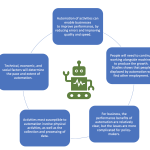In today’s rapidly changing business landscape, the importance of informed business decisions cannot be overstated. Leaders are increasingly faced with complex scenarios that challenge their ethical decision-making abilities, raising questions about transparency and accountability. As illustrated by notorious cases like Sam Bankman-Fried’s FTX collapse, wavering on ethical lines can have devastating consequences. Business executives, therefore, must leverage effective decision-making strategies to navigate these convoluted waters successfully. Renowned ethicist Joseph Badaracco emphasizes that a comprehensive analysis of situations, coupled with a recognition of business ethics, is essential in fostering integrity and responsible leadership.
In the realm of corporate governance, choosing the right course of action is more crucial than ever. Strategic choices, often seen through the lens of business judgments, require robust analysis and a nuanced understanding of ethical implications. Professionals must not only evaluate potential outcomes but also confront moral dilemmas that arise in varied contexts, necessitating a thorough examination of the situations at hand. With the landscape evolving continuously, the principles of business ethics must adapt to ensure leaders remain accountable and responsive to the complexities of modern decision-making. As Joseph Badaracco posits, each situation brings its own set of challenges that require leaders to reflect deeply and act with clarity.
The Importance of Ethical Decision Making in Business
In the landscape of modern business, the practice of ethical decision making has never been more crucial. Business leaders today are navigating a myriad of complexities that extend beyond traditional ethical boundaries. This includes the influence of technology, globalization, and evolving regulatory standards. Engaging in ethical decision making is not merely a compliance requirement; it’s a fundamental aspect of building trust with stakeholders, cultivating a positive company culture, and ensuring long-term sustainability. Ethical considerations often guide business decisions toward outcomes that resonate positively with both consumers and investors.
Moreover, business ethics are in constant evolution, reflecting societal values and ethical expectations. As Joseph Badaracco emphasizes, the landscape is now more global, with ethical dilemmas frequently arising in international contexts. This demands that business professionals are equipped with comprehensive decision-making strategies that incorporate not only legal obligations but also moral considerations. Ethical decision making helps avert potential pitfalls by fostering a culture where transparency and accountability are prioritized. Companies that embrace ethical practices tend to outperform their peers in both reputation and profitability.
Complex Decision Analysis in Today’s Business Environment
The modern business environment presents an array of complex decisions that necessitate rigorous analysis. The ability to analyze such complexities is vital for executives who must consider multiple stakeholders’ interests and the ethical implications of their choices. Badaracco notes that the decision-making process is not merely about identifying clear-cut solutions but involves navigating gray areas that often complicate ethical judgments. By applying frameworks of complex decision analysis, leaders can dissect intricate scenarios, foresee potential consequences, and make informed choices that align with both corporate and social responsibilities.
Furthermore, complex decision analysis requires the integration of various perspectives including ethical considerations, economic realities, and societal impacts. This holistic approach helps leaders not only to strategize effectively but also to anticipate and mitigate risks associated with their decisions. By employing decision-making strategies that leverage collaborative input and critical thinking, organizations can enhance their capacity to resolve complex issues ethically and responsibly. This proactive stance is essential in a landscape fraught with challenges ranging from technological disruptions to shifting societal values.
Understanding Business Decisions and Their Impact
Business decisions are pivotal, with far-reaching implications that can shape the trajectory of an organization. These decisions often involve weighing various factors, including legal, ethical, and economic dimensions. Joseph Badaracco highlights the importance of recognizing that not all decisions fall within the dichotomy of right and wrong. Instead, they exist on a continuum, where personal judgment, ethical considerations, and situational context play integral roles. Understanding that decisions can have lasting impacts—both positive and negative—is essential for leaders in ensuring that their choices benefit not just the company but also the broader community.
The impact of business decisions is particularly evident in today’s interconnected global economy. The decisions made by companies today can resonate for years, influencing stakeholder relationships and public perceptions. As organizations strive to maintain ethical integrity, the importance of assessing the broader impacts of business decisions becomes paramount. Badaracco emphasizes that successful leaders should ask themselves not only how to achieve their goals but also what responsibilities come with their decisions. This reflection leads to more conscientious decision-making processes that prioritize ethical implications alongside strategic objectives.
Decision-Making Strategies for Ethical Leadership
In an era where ethical challenges abound, developing strong decision-making strategies is crucial for leaders who aspire to navigate these complexities with integrity. According to Badaracco, effective decision-making in business requires a comprehensive understanding of both ethical principles and practical realities. Leaders must engage in continuous reflection, asking critical questions about their responsibilities and the possible implications of their actions. These strategies not only safeguard against self-serving tendencies but also enhance accountability within organizations, fostering a corporate culture that values ethical conduct.
Moreover, involving diverse viewpoints in the decision-making process can mitigate biases and lead to more rounded, ethical outcomes. Badaracco advocates for spaces where team members can voice differing opinions and challenge assumptions. Such dialogues contribute significantly to ethical decision-making by ensuring that leaders consider various perspectives before arriving at a conclusion. Implementing these decision-making strategies is essential for maintaining ethical standards and reinforcing a company’s commitment to integrity in all business practices.
Navigating Gray Areas in Decision Making
Navigating gray areas in decision making poses significant challenges for business leaders. These situations often lack clear answers, requiring a nuanced approach to understanding the ethical implications of available choices. Badaracco identifies that executives must grapple with competing obligations and uncertainties, making the decision-making process inherently complex. Leaders must engage in deep reflection and analysis, considering all relevant factors before proceeding. This reflective approach not only aids in making sound judgments but also promotes ethical responsibility when dealing with ambiguous situations.
Equipped with strategies for navigating gray areas, leaders can better prepare themselves to make choices that align with their ethical standards and organizational values. Badaracco suggests that creating a culture of transparency and open communication can significantly influence how decisions are approached in challenging contexts. By fostering collaboration and encouraging dialogue, organizations can enhance their ability to manage ethical dilemmas effectively, reducing the risks associated with decision-making in uncertain environments. Such practices ultimately cultivate a robust corporate ethos that prioritizes ethical considerations in all aspects of leadership.
The Role of Reflection in Ethical Decision Making
Reflection plays a crucial role in ethical decision making, allowing leaders to step back and critically assess their choices against their values and responsibilities. According to Badaracco, engaging in reflective practices such as quiet contemplation or seeking counsel from trusted colleagues can clarify complex situations and foster better decision outcomes. This process encourages leaders to evaluate not only the factual basis of a decision but also the ethical dimensions that may be at play. Taking time to reflect can provide individuals with the clarity needed to navigate the intricate landscape of business ethics.
Integrating reflection into the decision-making process also enhances a leader’s awareness of cognitive biases and self-serving tendencies. Recognizing these influences is essential for avoiding ethical pitfalls and leading with integrity. Badaracco emphasizes that reflection should be guided by poignant questions: What truly matters? What are my core responsibilities? What consequences may arise from this decision? By continually engaging in reflective practice, leaders can make informed decisions that align with both ethical standards and their broader business objectives.
Lessons from High-Profile Ethical Failures
The high-profile ethical failures of leaders such as Sam Bankman-Fried and Elizabeth Holmes serve as cautionary tales for business executives today. Their decisions, marked by ethical shortcomings, brought about significant consequences not only for their organizations but also for investors and the broader financial community. Badaracco notes that these situations remind us of the importance of adhering to a robust framework for ethical decision making. Understanding the lessons from such failures is crucial for preventing similar missteps in the future, as they underline the dangers of neglecting ethical considerations in pursuit of success.
These cases also emphasize the necessity for business leaders to maintain a clear boundary between legal and ethical decision making. While laws can guide actions, they do not always encompass the full ethical landscape within which business operates. The integration of ethical standards into strategic decision-making processes is essential if leaders are to avoid the slippery slope that can lead to unethical behavior. By reflecting on the implications of past failures, modern leaders can better equip themselves to make decisions that uphold both legal standards and ethical principles.
Cognitive Biases and Their Impact on Decision Making
Cognitive biases pose significant challenges to effective decision making, often clouding judgment and leading to unethical choices. In complex scenarios, such as those faced in high-stakes business environments, these biases can skew perception and obscure critical facts. Badaracco emphasizes the need for leaders to be aware of these biases and to seek diverse perspectives that can help counteract them. By collaborating with teams and engaging in analytical discussions, decision-makers can improve their likelihood of making ethical and responsible choices amidst uncertainty.
Mitigating the influence of cognitive biases is essential for ethical leadership. Badaracco suggests that by creating environments conducive to honest dialogue and reflection, leaders can enhance their decision-making processes. This includes actively soliciting input from different stakeholders and encouraging open communication about ethical implications. The more leaders practice this approach, the better their decisions will align with both ethical standards and organizational goals, which is particularly important in today’s complex business landscape.
The Future of Business Ethics in a Global Context
As the business landscape continues to evolve, the future of business ethics in a global context remains a pertinent topic. The rise of technology, globalization, and changing societal expectations necessitate a reevaluation of ethical frameworks. Badaracco points out that today’s leaders must navigate an increasingly interconnected world where decisions have repercussions that extend far beyond their immediate context. This requires a deeper understanding of how cultural differences can impact ethical norms and expectations, which is essential for fostering global accountability.
In this rapidly changing environment, organizations must be proactive in adapting their ethical standards to reflect new realities. Emphasizing the importance of continuous education in business ethics, leaders should invest in training programs that equip employees with the tools necessary to address ethical dilemmas effectively. By promoting a global perspective on ethics, businesses can not only enhance their integrity but also contribute positively to society as a whole, ultimately shaping a future where accountability and ethical decision-making are central to business operations.
Frequently Asked Questions
What are the best decision-making strategies for ethical decision making in business?
Effective decision-making strategies for ethical decision making in business include utilizing frameworks that emphasize clarity, reflection, and stakeholder impact. This involves assessing the ethical implications of decisions not only from a profit perspective but also in relation to the stakeholders affected. Engaging in complex decision analysis ensures that all facets of an issue are considered, allowing for well-rounded judgments that align with business ethics.
How can understanding business ethics enhance complex decision analysis?
Understanding business ethics enhances complex decision analysis by providing a moral framework within which to evaluate decisions. It helps decision-makers identify the ethical stakes involved in various scenarios and promotes accountability. By recognizing the gray areas that may exist in business scenarios, leaders can navigate uncertainties and make responsible choices informed by ethical principles.
What role does Joseph Badaracco play in influencing decisions about business ethics?
Joseph Badaracco is a pivotal figure in the domain of business ethics, known for his approach to ethical decision-making that emphasizes the need for a nuanced understanding of complex issues. His teachings encourage future business leaders to recognize that ethical dilemmas often require more than just logical analysis; they necessitate a consideration of the broader ethical implications, ultimately influencing how decisions are made in the business landscape.
How can one avoid unethical decisions when faced with gray area challenges in business decisions?
To avoid unethical decisions amid gray area challenges, it is crucial to engage in reflective practices that promote diverse perspectives. Collaborating with trusted colleagues, seeking feedback, and critically evaluating the potential impacts of decisions can help reduce biases. By applying ethical decision-making frameworks, leaders can better navigate ambiguous situations and uphold ethical standards.
What is the importance of ethical decision making in today’s business environment?
Ethical decision making is increasingly important in today’s business environment due to the complexities of stakeholder relationships and the evolving landscape of global business practices. Companies are often required to balance profit motives with social responsibilities, making ethical considerations essential for sustainable success. Understanding business ethics equips leaders to make decisions that positively impact their organization and society.
How can decision-making strategies be adapted to address modern ethical challenges in business?
Decision-making strategies can be adapted by incorporating continuous learning and responsiveness to changing ethical landscapes. Businesses should establish flexible governance structures that prioritize ethical considerations across all levels. Training programs focused on ethical decision-making can enhance awareness and prepare leaders for navigating modern challenges that increasingly involve technology and global contexts.
Why is it essential to reflect before making significant business decisions?
Reflecting before making significant business decisions is essential as it allows leaders to evaluate motives, consequences, and the ethical implications of their choices. This reflective process can uncover biases and help clarify core responsibilities, ensuring that decisions are grounded in sound ethical reasoning. Taking the time to pause and think can lead to better informed and more responsible business decisions.
How do cognitive biases affect decision-making in business ethics?
Cognitive biases can significantly affect decision-making in business ethics by distorting perception and judgment, leading individuals to overlook ethical considerations or justify questionable decisions. Recognizing these biases and implementing checks, such as seeking diverse viewpoints and engaging in open discussions, can mitigate their influence. An awareness of these pitfalls is essential for responsible decision-making.
| Key Point | Explanation |
|---|---|
| Changing Definition of Business Ethics | Business ethics have shifted from traditional philosophical approaches to focusing on specific problems and contextual situations. |
| Increased Complexity | Executives face more complicated ethical dilemmas due to international contexts and technological advancements. |
| Personal Judgment in Gray Areas | Many decisions are not clear cut; ethical dilemmas often exist in gray areas that require personal judgment. |
| Potential for Bias | Executives must combat cognitive biases when making decisions in complex, gray areas. |
| Importance of Reflection | Reflective practices help decision-makers clarify their thoughts and responsibilities. |
Summary
Business decisions are often fraught with complexity and ethical dilemmas that require careful consideration. Understanding the evolution of business ethics and the challenges faced by leaders today is crucial for making sound decisions. With the landscape of ethics constantly changing, executives must engage in reflective practices to navigate gray areas effectively. By recognizing the importance of both analytical and intuitive approaches to decision-making, leaders can enhance their chances of making responsible choices in a modern business environment.


